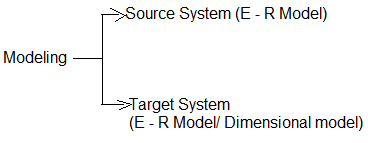
That is 010102
2nd jan 2001
Where P =0 Q =1 R = 2 S = 3
- - > We may load the Source attribute ENO as it is to the Target Attribute , or may make Same attribute.
The data-* attributes is used to store custom data private to the page or application.
The data-* attributes gives us the ability to embed custom data attributes on all HTML elements.
The stored (custom) data can then be used in the page's JavaScript to create a more engaging user experience (without any Ajax calls or server-side database queries).
The data-* attributes consist of two parts:
-The attribute name should not contain any uppercase letters, and must be at least one character long after the prefix "data-"
-The attribute value can be any string
Note: Custom attributes prefixed with "data-" will be completely ignored by the user agent.
Ex: We have ENO as N 1234, N 3567
-The transformation we need to make is change All Ns to the value 8.
-Now, ENO Will be 81234,83563
-Both the source entities may have on Referential Integrity i.e they are related With each other to make same transformations.
-The main 4 jobs involved in doing an project are :
-Designing
-Performance
-Testing
-Conventions

- - > Both the Source Entities , are related with each other through joins, known as
Horizontal Combining in data Warehousing.
Dimensional modeling / ER Modeling:
- - > Modeling will never happen at data base i.e Oracle

- - > Source system when modeled will always have only E- R Model
- - > Target system when modeled may have either E- R / Dimensional model
Desired to gain proficiency on DataStage? Explore the blog post on DataStage training to become a pro in DataStage.
-Logical representation of Source system or Target system w. r. t client requirements
-r .t customer perspective
-Logical representation is nothing but pictorial representation.
-Modeling popular Modeling Tools Modeling Tools.
-Most popular Modeling Tools are
-ERWIN
2 ERSTUDIO
Based on Business Requirements Document (BRB), Modeling Will be done by Data Modeler /DBA/Team leader (TL)/ Project loader (PL)
- - >To create it in a database,

Designed from Scratch (from beginning)
Making some attributes to the already existing Model
why do we called Target system as a Dimension Model ?
(Ex: Suppose we want exp of emp as target info, Target system will products
Emp of Emp in different ways , that is in years, months, days, Hours, Seconds, nano Seconds )
You liked the article?
Like: 0
Vote for difficulty
Current difficulty (Avg): Medium

TekSlate is the best online training provider in delivering world-class IT skills to individuals and corporates from all parts of the globe. We are proven experts in accumulating every need of an IT skills upgrade aspirant and have delivered excellent services. We aim to bring you all the essentials to learn and master new technologies in the market with our articles, blogs, and videos. Build your career success with us, enhancing most in-demand skills in the market.